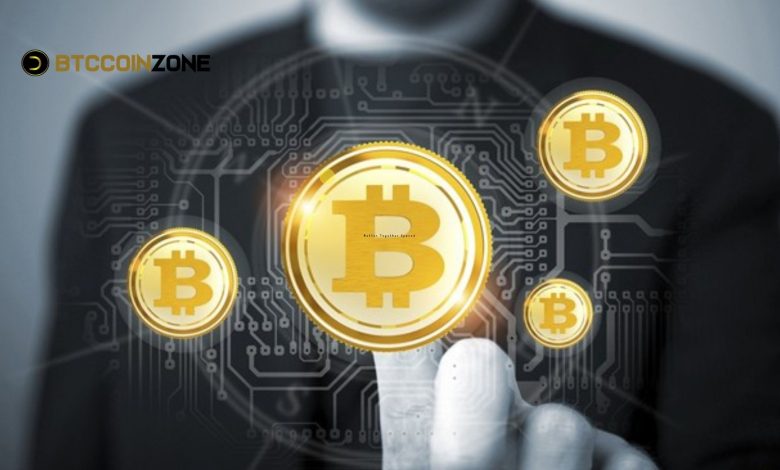Dedicated Server Bitcoin Payment & Challenges of Using Bitcoin

Dedicated Server Bitcoin: Dedicated server hosting is just one of many services that accept Bitcoin as a payment option in the rapidly developing world of online transactions. More and more dedicated servers are starting to accept Bitcoin as a payment option. Dedicated servers offer one client exclusive access to a physical server. This integration highlights the increasing importance of Bitcoin in regular trade. Bitcoin has many benefits, but there are also some difficulties that businesses and consumers must overcome when making Bitcoin payments. The benefits and drawbacks of using Bitcoin to pay for dedicated servers are discussed in this article.
What is a Dedicated Server?
One user or organisation is the sole recipient of a dedicated server, which is a high-performance computing resource that is solely provided to them. Dedicated servers provide unrivalled levels of performance, security, and control in contrast to shared hosting, which allows several users to share the server’s resources collectively. As a result, they are ideally suited for resource-intensive applications, large databases, and websites that receive a lot of traffic. When it comes to ensuring optimal operation and lowest downtime, businesses that require robust and reliable server performance frequently choose dedicated servers as their infrastructure of choice.
Bitcoin Payments for Dedicated Servers
Bitcoin transactions are a new way that may be utilised in the market for dedicated servers to conduct transactions. The fact that Bitcoin is a decentralised cryptocurrency implies that it operates independently of the banking systems that are currently in place. Not only does this offer a variety of advantages, but it also offers the following:

Enhanced Security
Blockchain is a decentralised ledger that records transactions in Bitcoin. These transactions are protected by cryptographic methods and published on the blockchain. By utilising this security architecture, the possibility of fraudulent activity and chargebacks, which are typical of conventional payment systems, is significantly reduced. Dedicated server providers can limit their vulnerability to fraudulent activity and chargeback disputes by accepting Bitcoin.
Lower Transaction Fees
The use of traditional payment methods, such as bank transfers and credit cards, frequently results in the imposition of transaction fees by middlemen. The expenses associated with Bitcoin transactions are typically lower, particularly when it comes to international transfers. The acceptance of Bitcoin by dedicated server providers allows for a reduction in the costs associated with processing payments and an improvement in their overall financial efficiency.
Global Accessibility
Because Bitcoin is decentralised and accessible worldwide, companies may take payments from customers all around the globe. Because of this worldwide presence, dedicated server providers may more easily service customers from all over the world without having to deal with complicated currency conversion or foreign banking procedures. Transactions across different areas are made smooth by Bitcoin’s borderless nature.
Faster Transactions
transfers that include Bitcoin can be executed more quickly than those that involve traditional methods, particularly when it comes to overseas transfers. Bitcoin payments can be processed in a matter of minutes, in contrast to bank transfers, which typically take several days to complete. Customers who demand immediate service activation or payment processing might benefit from this speed with their orders.
Bitcoin Payment Issues for Dedicated Servers
Payments with Bitcoin dedicated servers come with several problems. Transactions and financial stability are impacted by the volatility of Bitcoin prices. Compliance is challenging since regulations differ by location. Robust Bitcoin wallet security is necessary in light of security risks. Technical difficulties arise in the integration and maintenance of payment systems. For customers to adopt cryptocurrencies, newcomers must be educated.
Volatility
Utilising Bitcoin as a payment mechanism presents several issues, one of the most significant of which is the cryptocurrency’s price volatility. In a relatively short amount of time, the value of Bitcoin can see significant fluctuations, which may affect the amount of money that suppliers receive. Businesses may experience uncertainty as a result of this volatility when it comes to selling their services and managing their financial planning decisions.
Regulatory and Compliance Issues
The landscape of regulations about Bitcoin and other cryptocurrencies is constantly changing. How and where cryptocurrency is taxed differs from one country to the next. To prevent legal trouble and stay in compliance, dedicated server providers should research regional regulations. This involves being aware of the financial ramifications and following all rules for know-your-customer (KYC) and anti-money laundering (AML).
Security Concerns
Bitcoin transactions themselves are safe, but there are new security concerns when it comes to storing and managing cryptocurrency assets. If they want to keep their Bitcoin wallets safe from hackers and theft, providers must use strong security methods. Some examples of this include employing multi-signature authentication, updating security protocols regularly, and adopting safe wallet storage solutions.
Technical Complexity
Technical complexity can arise when integrating Bitcoin payments into preexisting billing systems. To accept Bitcoin, service providers must first create a Bitcoin wallet, select a payment processor, and then add Bitcoin payment functionality to their online store or billing system. Additional software development and maintenance expenses may be incurred as a result of this process’s need for technical knowledge.
Customer Adoption and Education
Unfortunately, not all consumers feel at ease making purchases with Bitcoin. The process of informing and reassuring customers about Bitcoin payments might be difficult for dedicated server providers. To make transactions go smoothly and guarantee client pleasure, providers should also provide clear instructions and help.
How to Accept Bitcoin for Dedicated Servers
You need to open a Bitcoin wallet to make secure Bitcoin transactions before you can use them to pay for dedicated servers. Afterwards, connect your billing system with a Bitcoin payment processor of your choice. Make sure your website or platform accepts Bitcoin by adding payment alternatives. As a last step, make sure your clients know how to use Bitcoin so they can pay easily.

- Set Up a Bitcoin Wallet: The first step is to create a Bitcoin wallet to receive and manage Bitcoin payments. Wallets come in various forms, including software wallets, hardware wallets, and online wallets. Providers should choose a wallet that meets their security and usability needs.
- Choose a Payment Processor: A cryptocurrency payment processor facilitates the acceptance of Bitcoin payments by handling transaction processing and conversions. Providers should select a reputable payment processor that offers integration with their existing billing systems and supports their preferred payment features.
- Integrate Bitcoin Payments: Integrate Bitcoin payment options into the dedicated server provider’s website or billing system. This involves configuring the payment gateway, ensuring compatibility with the chosen payment processor, and implementing necessary security measures.
- Educate Customers: Inform customers about the option to pay with Bitcoin and provide clear instructions on how to use the payment method. This may involve creating educational resources, offering customer support, and addressing any questions or concerns about Bitcoin payments.
- Monitor and Manage Transactions: Regularly monitor Bitcoin transactions and manage the cryptocurrency holdings. Providers should track incoming payments, manage exchange rates, and ensure compliance with regulatory requirements.
In Summary
With the addition of Bitcoin as a payment option for dedicated servers, companies are changing the way they process transactions drastically. Enhanced security, reduced fees, and worldwide reach are some of Bitcoin’s benefits, but the cryptocurrency also has certain drawbacks, such as volatility, regulatory uncertainty, and technological difficulty. By weighing the pros and cons, dedicated server providers may make a well-informed decision on accepting Bitcoin as payment and improving their service offerings with this novel payment mechanism.
Also Read: Bitcoin Realized Price, Analysis Before the 2024 Halving
FAQs
1. What are the benefits of accepting Bitcoin payments for dedicated servers?
Accepting Bitcoin payments offers benefits such as enhanced security, lower transaction fees, global accessibility, and faster transaction processing.
2. What are the main challenges of using Bitcoin for payments?
Challenges include Bitcoin’s price volatility, regulatory and compliance issues, security concerns, technical complexity, and the need for customer education.
3. How can dedicated server providers mitigate the risks of Bitcoin’s volatility?
Providers can mitigate volatility risks by using payment processors that convert Bitcoin to fiat currency immediately, setting prices in fiat, and regularly monitoring market conditions.
4. What security measures should be implemented for Bitcoin payments?
Providers should use secure wallets, implement multi-signature authentication, and regularly update security protocols to protect Bitcoin holdings from theft or hacking.
5. How can providers educate customers about Bitcoin payments?
Providers can create educational resources, offer customer support, and provide clear instructions on how to use Bitcoin for payments to help customers understand and adopt the payment method.




